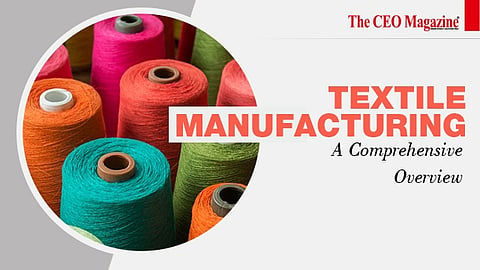

Textile Manufacturing
Textile Manufacturing
Textile manufacturing is the process of converting fibres into finished textile products. It is a vast industry that involves various processes, including spinning, weaving, knitting, dyeing, and finishing.
The textile industry is one of the oldest and largest industries in the world, with a significant impact on the global economy. In this article, we'll take a closer look at the different aspects of textile manufacturing.
The first step in textile manufacturing is fibre production. Fibres can be natural, such as cotton, wool, and silk, or synthetic, such as polyester, nylon, and rayon. These fibres are produced through different methods, including cultivation, animal shearing, and chemical synthesis.
Once fibres are produced, they are spun into yarns. This process involves twisting fibres together to create a continuous strand. Yarns can be produced through different methods, including ring spinning, open-end spinning, and air-jet spinning.
Yarns are then used to create fabrics through weaving and knitting. Weaving involves interlacing yarns to create a fabric, while knitting involves looping yarns together to create a fabric. Both of these processes can be done by hand or by using automated machines.
After fabrics are created, they can be dyed or printed. Dyeing involves colouring the fabric using different methods, including immersion, garment dyeing, and yarn dyeing.
Printing involves applying designs or patterns onto the fabric using different techniques, such as screen printing and digital printing.
The final step in textile manufacturing is finishing. This involves treating the fabric to enhance its properties, such as softness, durability, and water resistance. Finishing can be done through different methods, including calendering, singeing, and mercerising.
Textile manufacturing has a significant environmental impact. The use of chemicals in dyeing and finishing can result in the release of toxic substances into the environment.
The production of synthetic fibres, such as polyester, also involves the use of fossil fuels, which contributes to greenhouse gas emissions.
Textile manufacturing is a complex process that involves various stages, from fibre production to finishing. The textile industry is an essential part of the global economy, providing employment opportunities and generating revenue.
However, the industry also has a significant environmental impact, and there is a need to adopt more sustainable practices.
Follow us on Google News
